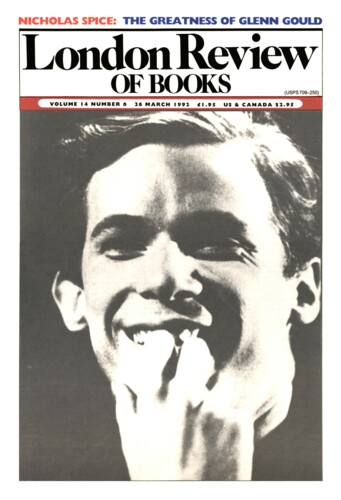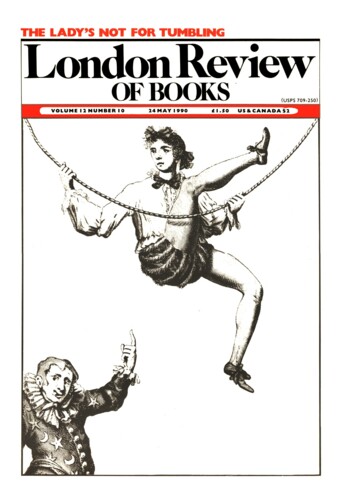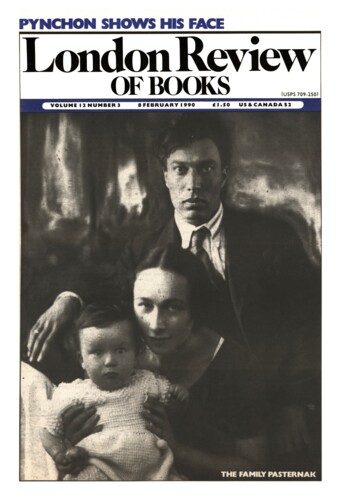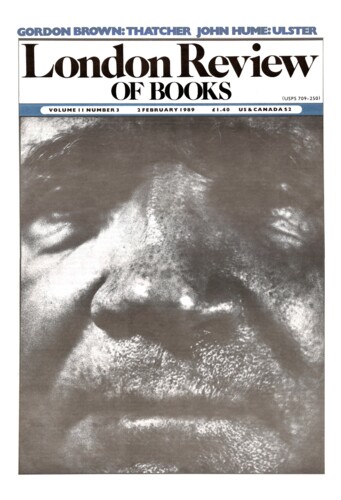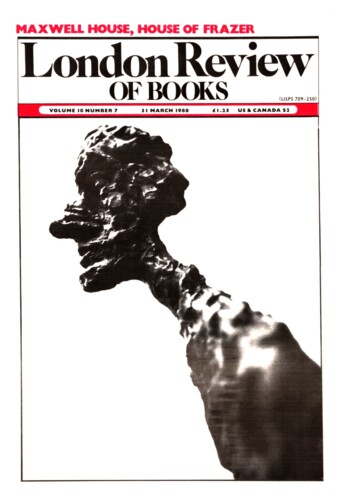Nabokov liked to write standing up (‘Piles,’ he told a fellow-teacher at Cornell, who thought it might be some short cut to creativity), and his letters reflect that inflexible posture, being all backbone and no upholstery. But prize them we must, for bringing us this otherwise impregnably stylish man’s first, unscripted thoughts; letters at least he wrote and sent, without – that we hear of – asking for them back, to groom them for permanent annexation to his oeuvre. Writing casually, and for a readership of one, he can identify himself with his style (‘… I am almost exclusively a writer, and my style is all I have’) without having to prove himself by doing so stylishly. But when, post-Lolita, the interviewers come, with their pads and tape-machines, to test his spontaneity, the style has once again to become the man, and the record of each viva to be called in for reworking before being passed for publication (‘I am greatly distressed and disgusted by my unprepared answers … These answers are dull, flat, repetitive, vulgarly phrased and in every way shockingly different from the “card” part of the interview’). It was a mark of resigned good sense therefore, not of inspiration, when, two years before he died, the New York Times asked if it could commission what it called the ‘ultimate interview’ with him, one conducted by himself. Point six and last in Nabokov’s majestic letter licensing this event reads: ‘My soul is mine. What you are going to get is an elegant and accurate shadowgraph on the brightest of walls.’ Souls were never his thing, they could but come under the nauseous heading of Human Interest which, he writes, ‘means Uncle Tom’s cabin to me (or Galsworthy’s drivel) and makes me sick, seasick’. Even when he himself turned to the supposedly soul-searching genre of autobiography and wrote a memoir of his early life – Conclusive Evidence, later to be called Speak, Memory – he defines it to a potential publisher as a hybrid between unqualified autobiography and a novel, the truth crossed with fiction, his life having been given ‘a definite plot’. Nabokov redrafts the old autobiographical contract in favour of the writer and against the basely inquisitive reader, form having the higher claim in his philosophy to fact.’
Nabokov liked to write standing up (‘Piles,’ he told a fellow-teacher at Cornell, who thought it might be some short cut to creativity), and his letters reflect that inflexible...
